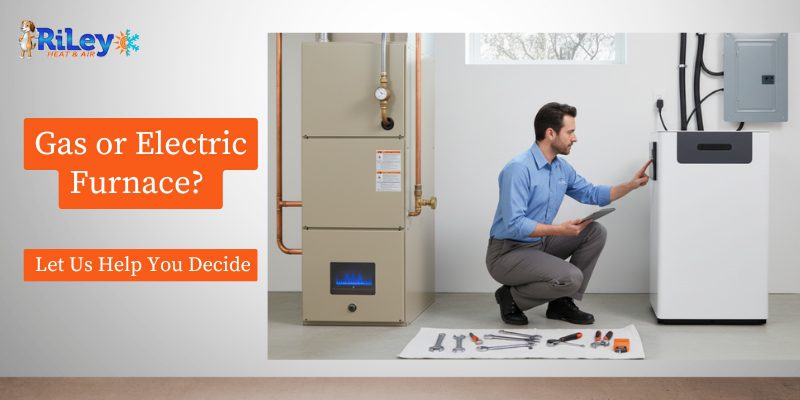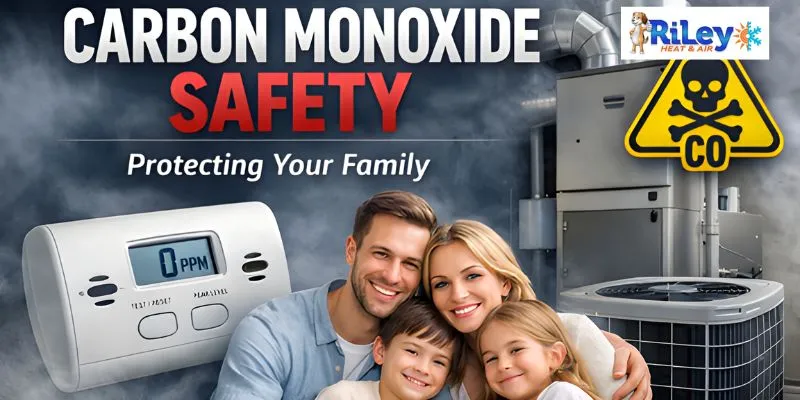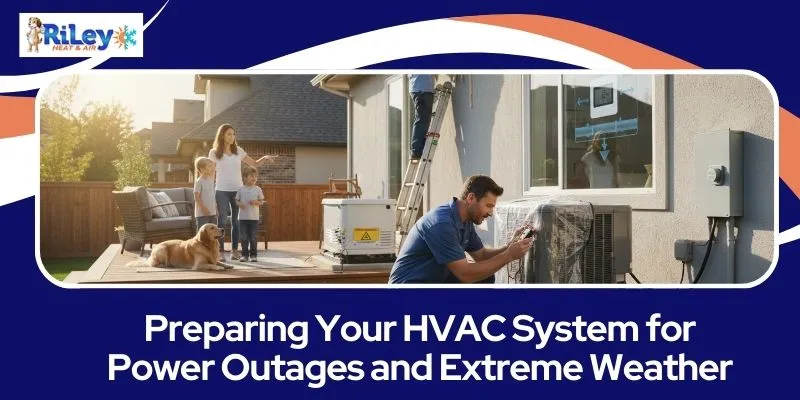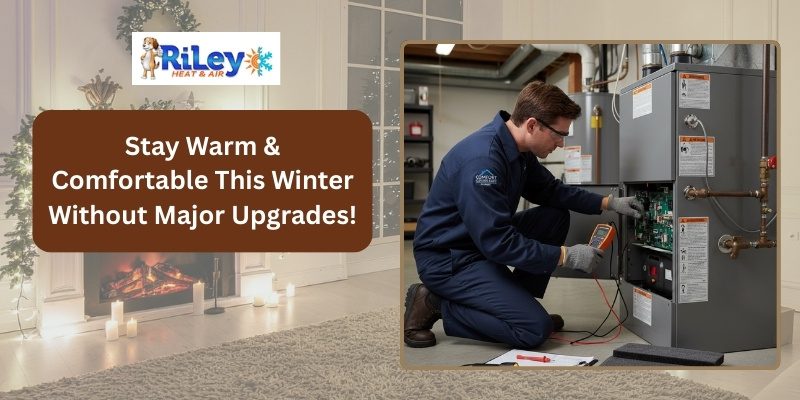
Gas vs. Electric Furnaces in Upper Marlboro: Repair and Maintenance Differences
When the temperature drops in Upper Marlboro, having a reliable heating system is no longer a luxury – it is a necessity. Many homeowners are considering the gas vs electric furnace, and it is no surprise why. Both of these options will help keep your home heated, but they differ in terms of cost, repair, maintenance, and durability.
Gas or Electric Furnace? Let Us Help You Decide
As summer winds down, residents in the DC metro area and throughout Maryland begin to look ahead to the coming cold season. If you don't already have a reliable furnace, you have a short window of opportunity to install or upgrade it before winter arrives. Should you get a gas furnace or an electric furnace?
The answer depends on the size of your home, your budget, and your lifestyle. Electric furnaces are easier, cleaner, easier to maintain, and less powerful than gas furnaces. To assist you in making a choice, we'll outline each system's function and what you can expect in terms of repairs and maintenance.
How Gas and Electric Furnaces Operate
1. Gas Furnaces
A gas furnace is a type of furnace that utilizes natural gas or propane as its fuel source for heating. Burners are used to ignite the gas, which in turn heats a heat exchanger. The warmed air is then pushed through ductwork and circulated into your home by a blower motor.
- Pros: High heat, heating efficiency in cold climates, low-cost, and long-term operation
- Cons: needs a gas line, more costly to install, could create carbon monoxide.
Electrical resistance heating elements are used in electric furnaces. As the current is passed through the elements, they get heated, and the blower blows the air.
- Pros: Initial cost is lower, safer to use, and easier to install
- Cons: Increase energy cost over time, requires more time to heat
Common Gas Furnace Repairs
Gas furnaces are a more complicated appliance, having a lot of moving parts and combustion components, meaning that they will need regular repairs. A few of the more prevalent problems are:
- Ignition Problems - Newer furnaces have a built-in electronic ignition, but the old ones have pilot lights. Any malfunction in any of the systems may stop ignition on the burners.
- Heat Exchanger Cracks - During its operation, the metal may become fatigued, resulting in cracks that can cause lethal carbon monoxide emissions.
- Blocked Burners - The heating element can get dirty and clogged with soot, thus lowering the heating efficiency and leading to uneven heating.
- Gas Valve Failures - When the valve malfunctions, there is no flow of gas, which means no heat or hazardous leaks will occur.
Common Electric Furnace Repairs
They are not without fault, and electric furnaces have the disadvantage of being more mechanically simple. Typical repairs include:
- Heater Element Failure - The Thermoelectric heating element burns out, leading to the loss of power to heat your house.
- Technical Problems with the Thermostat - When the thermostat is faulty, it results in fluctuations in the temperature, which further results in the furnace being overused.
- Electrical Problems - Premature shutdown can be a result of electrical problems, i.e., faulty wiring, faulty breakers, or fuses.
- Blower Motor Failures - Electric as well as gas furnaces use the blower to force heat as well.
- Clogged Shut-offs - Low air circulation or broken sensors may cause overheating of the furnace, which will automatically cause it to shut down.
Gas vs. Electric Furnace Repair Comparisons
1. Repair Complexity
- Gas Furnaces: Gas furnaces are complicated devices that require the experience of trained specialists in order to guarantee some safety in the event of gas leakages and gas combustion dangers.
- Electric Furnaces: There is not as much to diagnose and repair; however, electric safety cannot be dismissed.
2. Repair Costs
- Gas Furnaces: More expensive repair (gas valves, burners, or heat exchangers).
- Electric Furnaces: Low repair costs.
3. Efficiency and Lifespan
- Gas Furnaces: These warm more rapidly, and last 15-20 years when maintained.
- Electric Furnaces: They cost more to heat, but they only last about 20-30 years and have fewer mechanical problems.
4. Safety Considerations
- Gas Furnaces: Can both vent carbon monoxide or may also blow out, as a result of inadequate maintenance.
- Electric Furnaces: They can be considered safer, in general, but there are still fire hazards concerning the wiring.
5. Maintenance Needs
- Gas Furnaces: Annually required inspection for burners, gas lines, and venting systems
- Electric Furnaces: Electric furnaces are relatively low-maintenance and only need to be cleaned and have electrical inspections.
Maintenance Tips for Both Systems
Whether you use a gas or electric furnace in Upper Marlboro, preventive care is everything. Here are key steps:
- Change air filters on a regular basis
- Professional inspections
- Clean internal components
- Thermostat function
- Clean vents and ducts
The choice between a gas furnace and an electric furnace will come down to your situation:
Choose a Gas Furnace if:
- You want to heat up faster and with more efficiency when the cold Maryland winters roll around.
- You have your own natural gas line.
- You are happy to pay more initially in order to have long-term savings.
Choose an Electric Furnace if:
- You want to have a lower initial installation cost.
- You want something cleaner, safer, and easier to repair.
- You have a smaller living space or a milder climate
Still uncertain? Through a professional HVAC consultation, you can determine your options based on the size of your home, insulation, and budget.
Conclusion
Is it the replacement of an existing furnace, or is it a repair of the existing furnace, or just a preventive maintenance of an existing furnace? It all depends on selecting the correct HVAC partner. At Riley Heat & Air, we specialize in the repair, replacement, and maintenance of gas and electric furnace systems.
We offer quality workmanship, ensuring that every repair is completed correctly the first time. Call us today let's take care of all your furnace needs.






